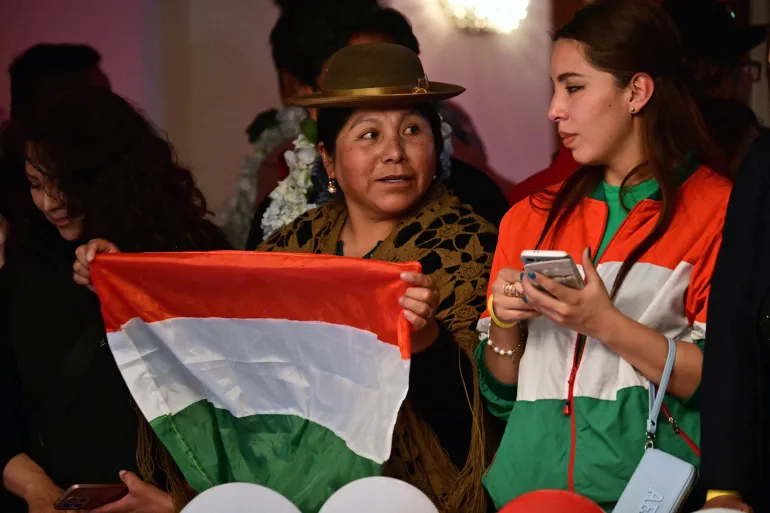Bolivia elects centre-right Rodrigo Paz as president | Elections News
Paz, the son of a former president, promises ‘capitalism for all’ as election ends 20 years of socialist government.
Bolivians have elected Rodrigo Paz of the centre-right Christian Democratic Party (PDC) as their new president, ending almost 20 years of governance by the Movement for Socialism (MAS) party.
With 97 percent of ballots counted, Paz had won 54.5 percent of the vote in Sunday’s run-off race, well ahead of right-wing former interim President Jorge “Tuto” Quiroga, with 45.4 percent of the vote, according to the country’s Supreme Electoral Tribunal (TSE).
Recommended Stories
list of 4 itemsend of list
Paz, 58, followed his father, former left-wing President Jaime Zamora, into politics.
After studying economics in the United States, Paz returned home to Bolivia, where he went on to become a city councillor and mayor of the southern city of Tarija, before becoming a senator for the region in 2020.
He has pledged a “capitalism for all” approach, promising tax cuts, tariff reductions, and the decentralisation of the national government.
After the results were announced, Paz’s vice-presidential running mate, Edmand Lara, made a call for “unity and reconciliation”.
“We must ensure the supply of diesel and gasoline. People are suffering. We need to stabilise the prices of the basic food basket, and we must put an end to corruption,” Lara said.
Sunday’s run-off came after the incumbent MAS party suffered a major defeat in August’s preliminary election, after former left-wing President Evo Morales was barred from running and outgoing President Luis Arce, who had fallen out with Morales, opted out of the race.
Courts had ruled against Morales’s candidacy over term limits and technicalities related to party affiliation.
The division within their left-wing coalition, along with the country’s deep economic crisis, meant few expected MAS to return to power.
Outside of the National Congress, the new president will still face stiff opposition from Morales, who remains popular, especially among Indigenous Bolivians.

On Sunday, Morales told reporters that the two candidates each represented only “a handful of people in Bolivia”.
“They do not represent the popular movement, much less the Indigenous movement,” he said.
Arce is due to leave office on November 8 after serving a single presidential term that began in 2020. Bolivia’s constitution allows for two terms, but he did not seek re-election.
Economic woes
The Andean country has been struggling through an economic crisis, including annual inflation of almost 25 percent and critical shortages of US dollars and fuel.
Bolivians took to the streets to protest high prices and hours-long waits for fuel, bread and other basics in the lead-up to the August 17 general election.
Bolivia had enjoyed more than a decade of strong growth and Indigenous upliftment under Morales, who nationalised the gas sector and ploughed the proceeds into social programmes that halved extreme poverty during his stint in power between 2006 and 2019.
But after Morales, who was outspoken on environmental issues and climate change, chose not to expand the country’s gas sector, energy revenues fell from a peak of $6.1bn in 2013 to $1.6bn in 2024, seeing the government run out of foreign exchange needed to import fuel, wheat and other foodstuffs.
Meanwhile, Paz has been unclear about whether he plans to continue a fuel subsidy that has cost the government billions of dollars, at times saying he will restrict it to “vulnerable sectors” of the population.
